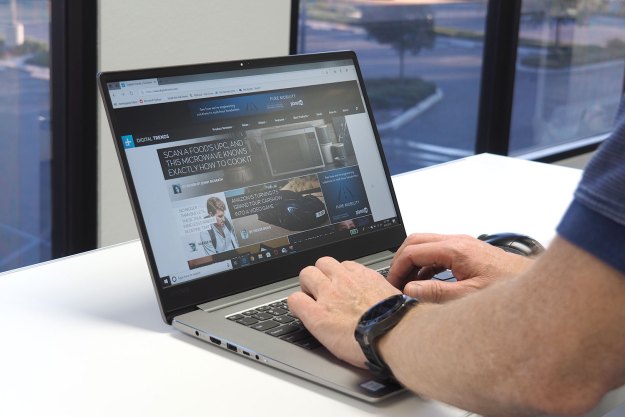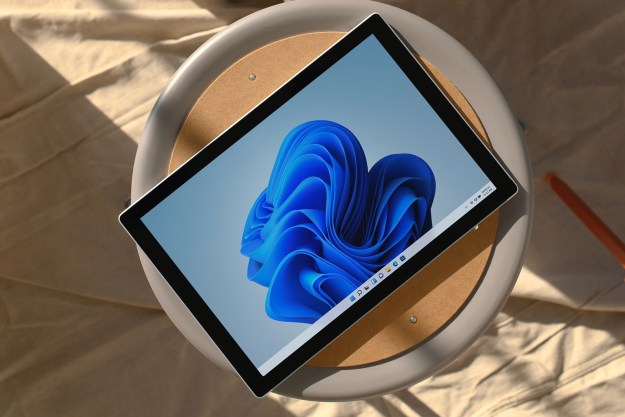
This is the time to both look back at 2010, which is ending, and look forward at 2011, with hope that we will exit it as well off as we did this one. Given current conditions this, unfortunately, may be an overly aggressive goal. In any case, there is a lot of cool stuff coming next year, I’ll try to pick the things that will play pivotal roles.
 Personal cloud
Personal cloud
The idea of your stuff being available to you wherever you are and on any device you want is becoming vastly more popular. With efforts like SugarSync, Apple’s MobileMe, and Microsoft’s Live Mesh, it is spreading broadly to the major vendors, and has at its core the realization that you want your stuff when you need it, and not just when you are on your PC. This is likely where the cloud becomes real to all of us, and will make new products like the iPad far more useful over time.
 Tablets
Tablets
I’ve seen the challengers lined up for early 2011, and most of them suck. An increasing number of us wonder if we should agree with Roger Kay and pronounce that, like the iPod, the market for this new device is owned by Apple. Still this little product is getting a lot of folks to look at the market differently, but Google and Microsoft won’t have a good response until at least 2012, Notion Ink is still way too small to compete with Apple, and HP doesn’t have a great record coming through in this area either, but it ironically may be the best bet in 2011. I say ironically because HP came the closest to taking out the iPod early on, which was why Jobs talked HP into doing an HP-branded iPod. This could be payback, but the smart money remains on Apple. Outside of HP and Apple, I don’t expect much of anything.
 OnLive
OnLive
This will be the make-it-or-break-it year for OnLive. The company has proven that the service works, and in 2011, it will begin to take it to the next level. Part of this is their version of streaming movies and videos. The advantage with OnLive’s approach is that it use an extremely thin client, allowing the service to more easily move across platforms than alternatives, which require more client-side technology. This could open the door to blended entertainment where the lines between movies and games are truly blurred. OnLive represents the biggest threat to the client-side status quo currently in market, and in 2011 it should hit its stride.
 4G
4G
While it is not clear yet if we can even agree what 4G is, clearly 2011 will be the year we are inundated with this name. We are heavily bandwidth constrained with 3G, and if we want to be able to use services like OnLive on our phones, 3G just doesn’t cut it. I doubt 4G will be enough either, but just like 3G took the market by storm the year the iPhone launched, 2011 is the year that 4G becomes the favorite way we do stuff.
 Windows 8
Windows 8
Yes, I know most of us just got Windows 7, but in 2011, we will start getting ready for Windows 8. Right now, we don’t yet know that much about the platform, other than it is designed to run against products like the iPhone and ChromeOS. This will undoubtedly be as big a rethink of the Windows platform as Windows Phone 7 was of Windows Mobile. Expect sweeping changes of the user interface, an even bigger diet than Windows 7 got, and just a little bit of magic, because this round Microsoft has some marketing people in the mix, and that typically means less “what were they thinking” and more “oh wow.”
 Electric and hybrid cars
Electric and hybrid cars
We will be up to our armpits in electric cars this year. However, most of us will still realize that the ecosystem for electric cars is years from being complete, and will end up with a new class of hybrids headed by the Chevy Volt which favors electricity over gas. This will allow us to drive the cars much like we did our old, gas-only vehicles, while still having enough performance to dust a Prius, to laugh at that all-electric cars stuck at the side of the road with dead batteries, and the poor sucker filling up his Hummer at the gas station. Those who have the right car will be grinning their way to the bank. Those who don’t, won’t be smiling as much.
 Outdoor-viewable displays
Outdoor-viewable displays
It looks like 2011 will be the year we can finally use our technology outside, as outdoor viewable displays like Qualcomm’s Mirasol, Pixel Qi, and HP’s unnamed secret display make it to market in ever increasing numbers. This will allow the lines between e-readers and tablets to become increasingly and irrevocably blurred, as both devices cross over into the territory of the other. Battery life will improve, weight will drop, and we can finally watch our movies, browse the web, and get skin cancer at the same time. Whee!?! Actually, I love working outside, and I’m really looking forward to this.
 IE9 and the race for hardware acceleration
IE9 and the race for hardware acceleration
The first fully hardware accelerated browser drives through the market in 2011, and Web pages will likely respond by becoming vastly more graphically rich, and much more exciting. This will undoubtedly drive some really interesting responses from Google and the Firefox folks as the competition in this area heats up in 2011, but you’ll finally have a reason to buy better PC hardware.
 AMD Fusion
AMD Fusion
Yes, 2011 is the year AMD strikes back with Fusion, which is the blurring of the CPU and GPU. You’ll see a ton of Fusion laptops at CES, which sport both long battery life and decent, high-definition graphics, including DX11 support, which IE9 requires for full hardware acceleration. They have positioned nicely around IE9, and for a company that for years couldn’t spell mobile, they have what could be the best blend between performance and battery life in the market.
 App stores
App stores
Apple started it, Google followed, and now even Microsoft is on board. 2011 will be the year we begin to say goodbye to traditional retail for software, and we begin to move to app stores as the primary way we get software on our PCs, tablets, and phones. No more wandering down aisles, no more installing and then patching for longer than it took to install. You just pay, download and go. Almost, depending on your bandwidth, instant gratification, and this is just the start.
Wrapping up: The wild card
The year 2011 will see us more connected, more able to enjoy our content anyplace we are (inside and outside), enjoying a richer Web, and playing with some of the coolest hardware we have ever seen. But there always is a wild card, and I think, in 2011 it will be robotics. Robots have been increasing steadily this year, and becoming more intelligent. Witness the Neato robotic vacuum vs. the Rumba, the Neato uses technology that came out of self-driving cars, the Rumba is more like an old bump and go toy. Things can get smarter in 2011, and they undoubtedly will. Hopefully, they won’t get so smart they wonder what they need us for.












